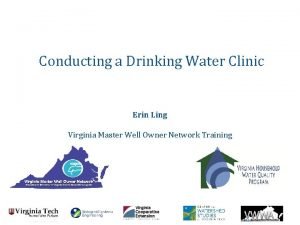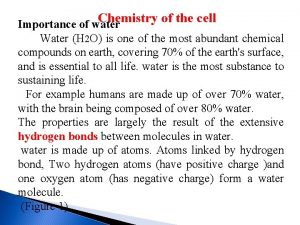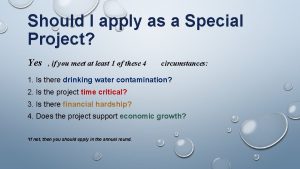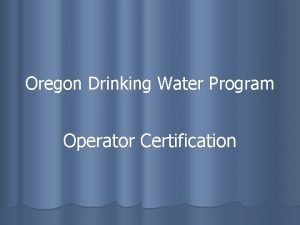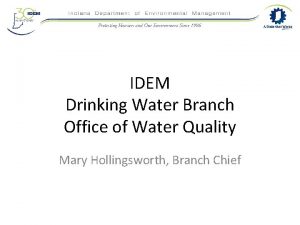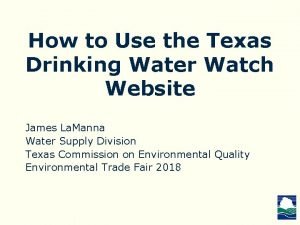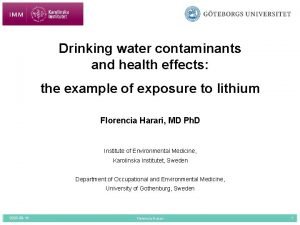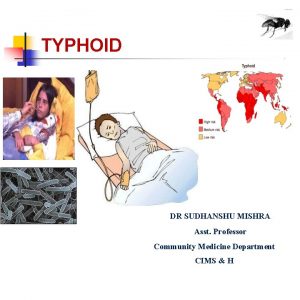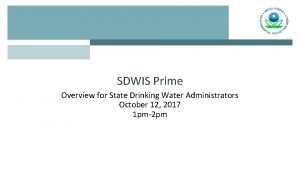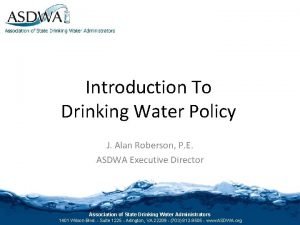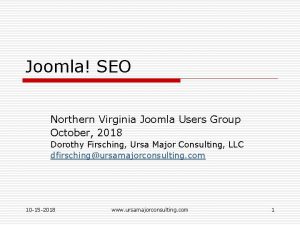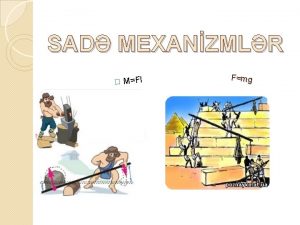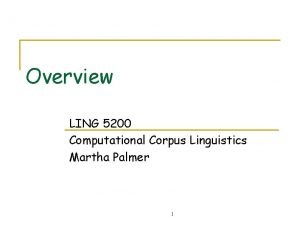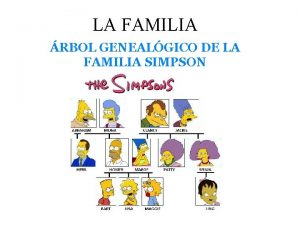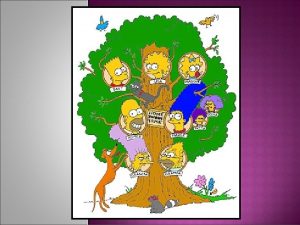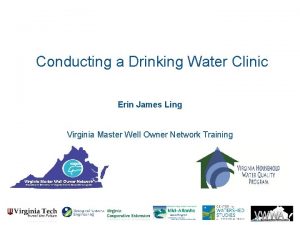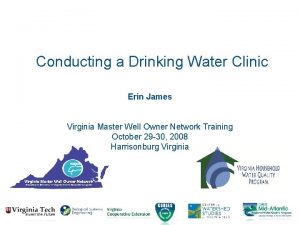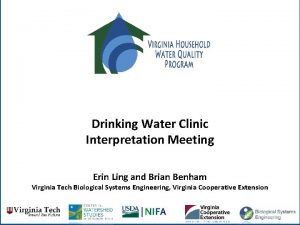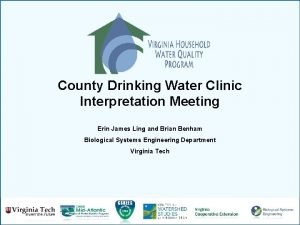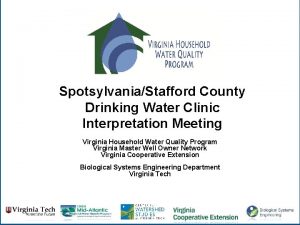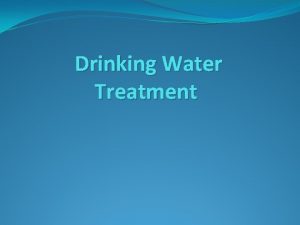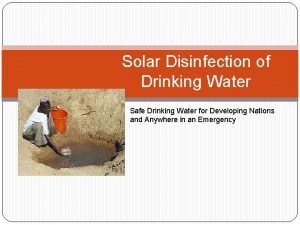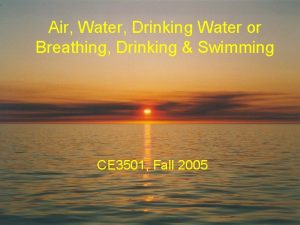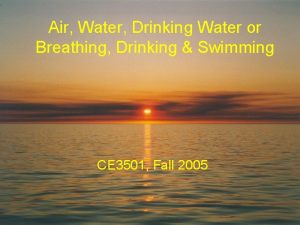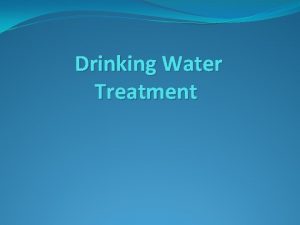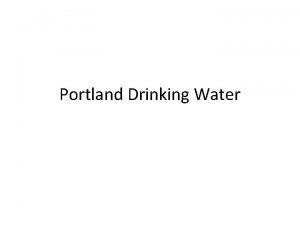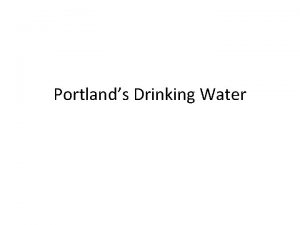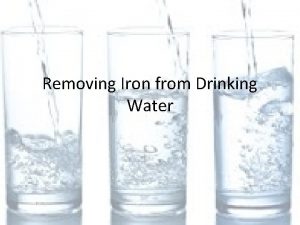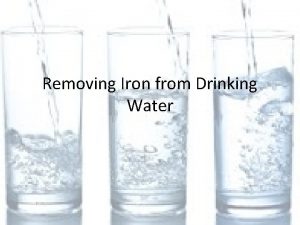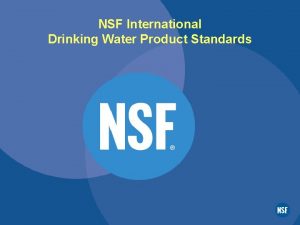Conducting a Drinking Water Clinic Erin Ling Virginia























- Slides: 23

Conducting a Drinking Water Clinic Erin Ling Virginia Master Well Owner Network Training

2008 -13 Clinic Stats 3825 samples analyzed 63 clinics in 84 counties $13, 000+ donations and scholarships contributed Farm Bureau Soil and Water Conservation Districts County Private Companies – water treatment, testing labs Local RC&D Virginia Water Well Association 2

The DWC Agent Packet Available at www. wellwater. bse. vt. edu Includes Information about planning Templates for advertising Registration list template Details so you can answer participant questions Evaluation form Copies of presentations from this training and Interpretation Meeting 3

Basic Steps 1. Kickoff Meeting 2. Sample Collection 3. Sample Analysis 4. Interpretation Meeting 4

Advertising 8+ weeks Consider: Newspapers Fliers Letter to homeowners Radio Home/Ag Shows/Fairs Seek donations or sponsors At this time, contact others to participate: VDH Env Health Specialists Local SWCD, NRCS, USGS 5

Prep for Kickoff Mtg Pre-registration Minimum of 35 participants Can combine counties Notify coordinator of anticipated # participants (2 weeks prior) Sample kits prepared at BSE water quality lab: Four sample bottles Questionnaire Sampling instructions Sample kits and coolers shipped to you 1 week prior Powerpoint presentation, notes and talking points provided What’s in YOUR water? Drinking water clinic Wells, springs and cisterns 123 Community Dr Nov 23, 2012 7 pm 6

Kickoff Meeting Brief presentation covering: HOW to collect a drinking water sample WHEN to collect the sample and drop it off WHERE to drop the sample off Consider handing out fliers with sample collection day, time and location Distribute sample kits and collect payment 7

Frequently Asked Questions What will analysis include? p. H, hardness, chloride, fluoride, sodium, sulfate, nitrate, iron, lead, arsenic, manganese, copper, TDS, total coliform bacteria, E. coli bacteria How many participants per clinic? Limit of about 200 per sample day Average of 60 per clinic in 2009 -2012 – would like MORE!! How much does it cost? $49. The same analysis a private commercial lab: $200+ We build in $2 per kit to cover your mailing and printing costs How does payment/billing work? You collect payment from participants at the Kickoff meeting WQ lab will bill you for entire amount. Pay with TWO Interdepartmental Service Requests (ISRs) through Mart – one for analysis, one for processing Hokie 8

Sample Collection - Them Instructions Stress instructions must be followed carefully or results are not accurate First draw and flushed samples Sampling “before” vs. “after” treatment Each sample kit is an additional $49 DAY and TIME sample is collected are very important – bacteriological analysis must be done within 24 hours of collection 9

Kickoff Meeting 101: ‘First Draw’ vs. ‘Flushed’ samples Metals like copper and lead are not usually found in groundwater, but may be leached from pipes and other plumbing into your water. If these metals are in your plumbing, water that has been sitting in your pipes for more than 6 hours will have the highest levels. The sample bottle labeled FIRST (X on top) needs to be collected first thing in the morning, before any water has been used in the home. Important! 1. 2. Do not use any water in the home after 10 pm Collect the bottle labeled “FIRST” with an “x” on the top FIRST, before running any water!

Kickoff Meeting 101: Water Sample Collection Sample envelope contains: 2 large bottles 2 small bottles Questionnaire Sampling Instructions Tips: ü Do not use water after 10 pm the night before! ü Choose a kitchen or bathroom (non-swivel) faucet. ü Do not remove cap until you are ready to collect sample. ü Do not touch inside of sample bottle or cap. ü Make sure sink is clean and dishes are removed. ü Remove all screens, filters, or aerators from faucet. ü Collect FIRST (X on top) bottle first! ü Wash hands before collecting other samples.

Sample Collection - You Provide ICE! About 20 lbs per cooler Collection day Recommend ~7 am – 10 am collection All sample bottles are numbered. Same number on the questionnaire. Ice samples immediately. Collect all questionnaires in envelope Meet halfway between Blacksburg and your county at predetermined location to transfer coolers to Water Quality Lab staff – details via email Bring empty coolers and extra kits with you 12

Sample Analysis Us (BSE Water Quality People) All samples analyzed for 14 constituents Reports compiled and printed Measures to protect confidentiality – IRB approval Takes a total of 3 weeks You (Agents) Remind participants of Interpretation Meeting day, time and location 13

Interpretation Meeting Conference call to go over results and common questions At Interpretation Meeting Distribute results to participants (only) Power. Point presentation provided Overview of results as a group Discuss what the numbers mean, compare to public standards Address eliminating possible sources of contamination Introduce treatment options Answer questions Interpretation sheet and evaluation form in envelope 14

Evaluation and Follow-up postcard for clinic participants: Will you test water regularly? Will you change your behavior (e. g. , reduce fertilizer use around well, pump out septic, shock well)? Will you talk to others about your experience? Statewide impact statement template 15

Lessons Learned: Advertising Best approaches: Newsletters Local newspaper column/feature article/press release Direct mailing Word of mouth Best time frame Start 8 weeks out and intensify 4 weeks before Mention pre-registration to avoid rush at end and not enough sample kits 16

Lessons Learned: Message content Individuals responsible for care and testing of own systems – not monitored like public systems Importance of understanding what maintenance is required Health effects of possible water quality issues Low cost of testing for this opportunity All results kept confidential Emotion/health and safety-based 17

Lessons Learned: Key Individuals and Groups to Involve/Invite Local VAMWON volunteers! Master Gardener volunteers Farm Bureau ELC Health Department Soil and Water District Contact from local water testing lab County Board of Supervisors Local RC&D Council 18

Lessons Learned: Seek additional funding or sponsorships Farm Bureau $5 per sample, $20 per sample for members Soil and Water Conservation District $2 per sample $250 divided among attendees RC&D Council $1000 divided among pre-registrants Grant funding through FCS agent 19

Working with volunteers 89 volunteers trained Application at www. wellwater. bse. vt. edu Interest; have well, spring or cistern Not affiliated with a water well business Volunteer expectations and policy Complete online training; minimum of 80% on post-test Unpaid, volunteer work only General educational advice – no specifics! Willingness to try to educate 100 people 20

Financial and Technical Assistance Virginia Dept of Housing and Community Dev’t (http: //www. dhcd. virginia. gov/Housing. Preservation. Rehabilitation/default. ht m) Emergency Home Repair Program Indoor Plumbing Rehabilitation Programs Livable Homes Tax Credit Virginia Lead Safe Homes Program Water/Sewer Programs USDA Rural Development Housing Programs(504) (http: //www. rurdev. usda. gov/rd/nofas/index. html) Very low to moderate income housing loans single or multi-family homes Grants for homeowners 62+ Rural rental housing loans for 21

Financial and Technical Assistance Southeast Rural Community Assistance Project (http: //www. sercap. org/programs/rc_facilities_dev. htm) Rural Communities Facilities Development Program (emergency housing loans to low income families) Many resources for small community water and wastewater systems What is available locally in your area? ? ? Let us know about it! 22

Questions? Discussion? 23
 Erin ling
Erin ling Water and water and water water
Water and water and water water Dww tceq
Dww tceq Drinking water state revolving fund
Drinking water state revolving fund Oregon water treatment certification
Oregon water treatment certification Indiana drinking water watch
Indiana drinking water watch Texas drinking water watch
Texas drinking water watch Lithium in drinking water map
Lithium in drinking water map Typhoid medicine course
Typhoid medicine course Drinking water system operator certificate
Drinking water system operator certificate Prime drinking water
Prime drinking water Nm drinking water watch
Nm drinking water watch Smart seo plugin joomla
Smart seo plugin joomla Jin ling cigarettes
Jin ling cigarettes Sadə mexanizmlər ling
Sadə mexanizmlər ling Ling
Ling Ling oa
Ling oa Mei-ling from singapore was preparing
Mei-ling from singapore was preparing Como se llaman las hermanas de marge simpson
Como se llaman las hermanas de marge simpson Dr ng li ling
Dr ng li ling Nien-ling wacker
Nien-ling wacker 施玲玲
施玲玲 Ling simpson
Ling simpson Graph4ai
Graph4ai
